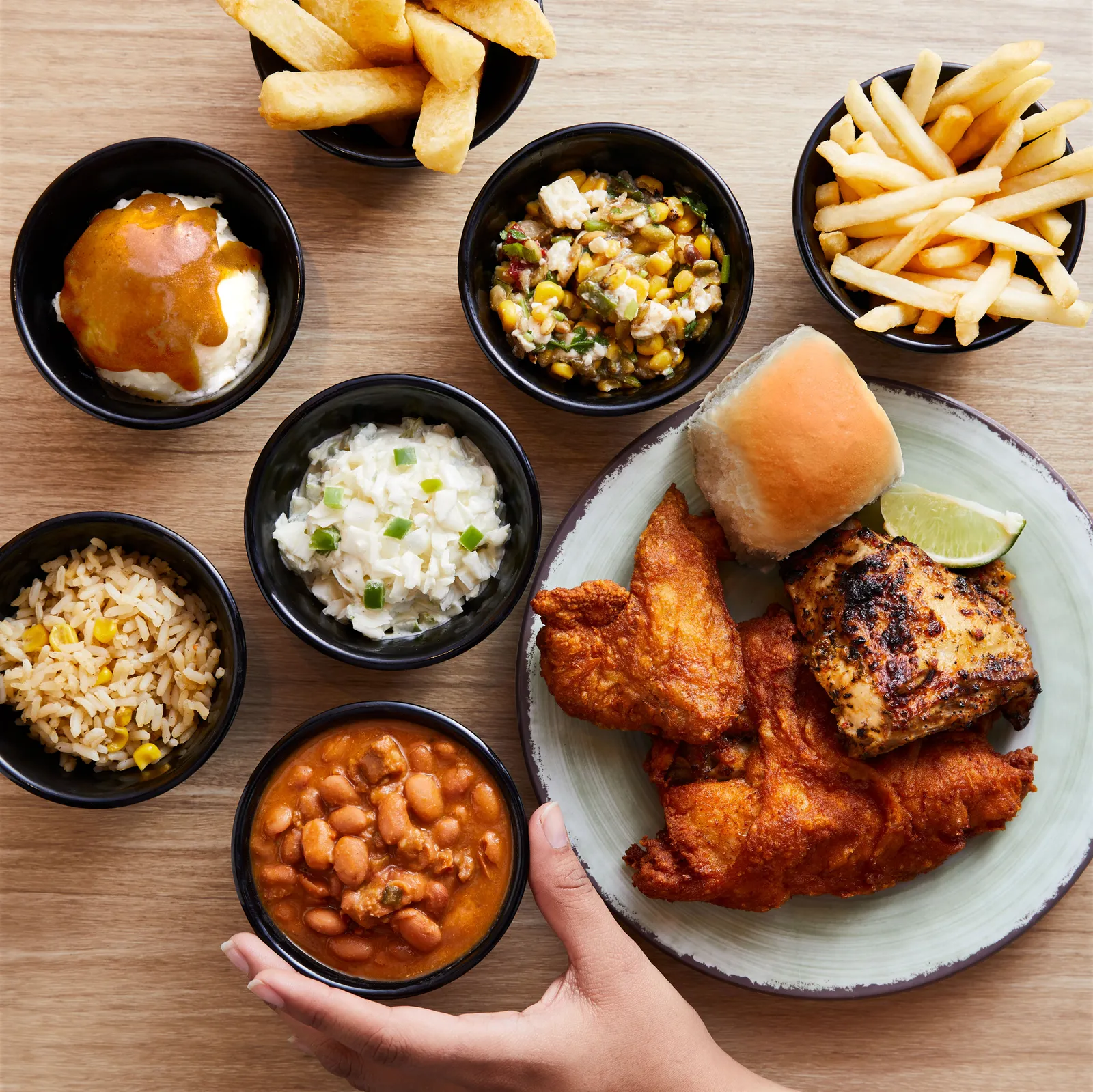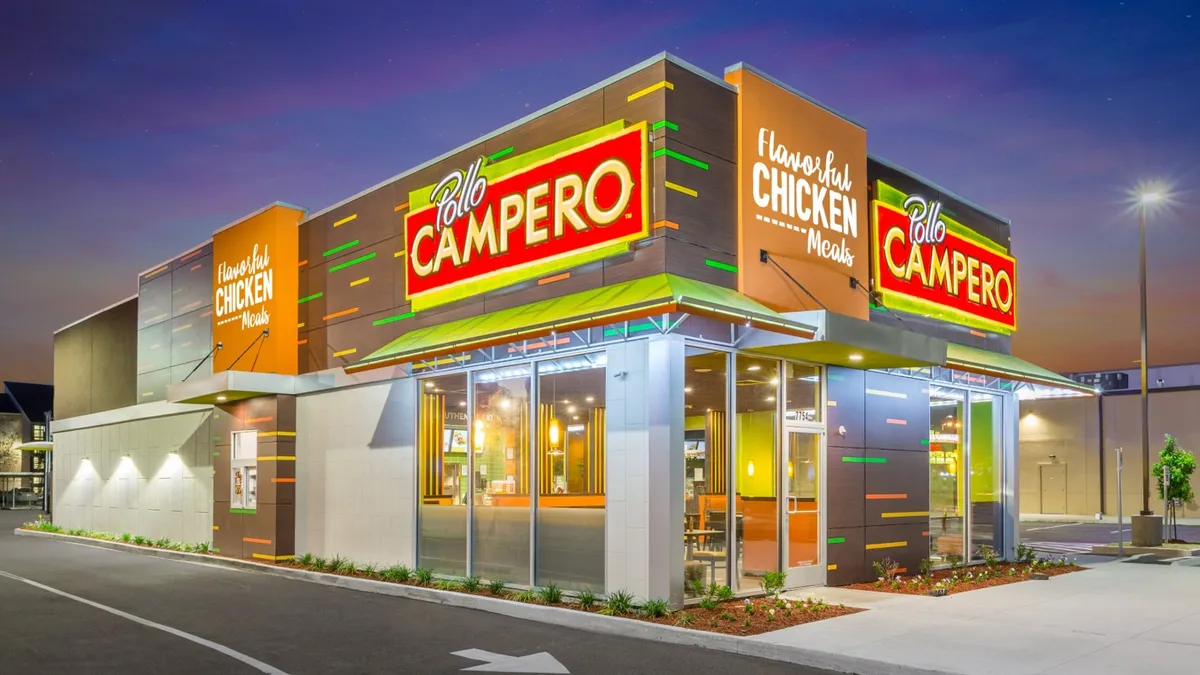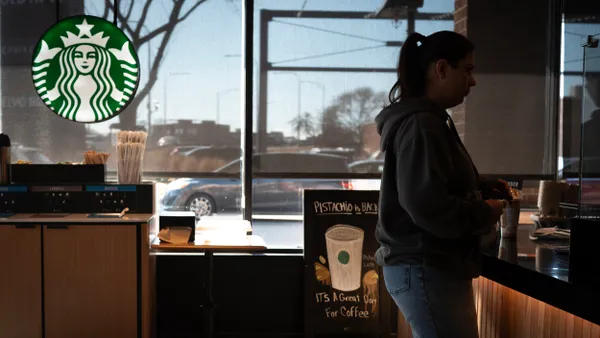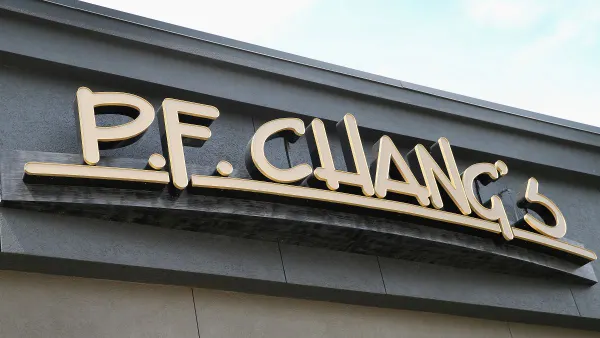Editor’s note: This article is part of an ongoing franchise series, which highlights brands that are new to or aggressively expanding via franchising. Is your restaurant starting to franchise? Email us at [email protected].
In 2002, Pollo Campero opened its first U.S. restaurant on Olympic Avenue in Los Angeles. The concept had already proven itself popular in Guatemala and El Salvador, where it has enjoyed a loyal following since it first opened in 1971. By 2002, it had 90 units in Guatemala, 59 in El Salvador and four in Mexico. With hundreds of thousands of immigrants moving from Central America into the U.S., there were plenty of legacy consumers that the QSR chicken chain could reach, said LJ Rodas, Pollo Campero’s COO and managing director.
Five years after it opened its first store and signed a deal with a franchisee in California, the company decided to open a corporate headquarters in Dallas. Then, the company expedited its growth. Popularity of the brand grew, and it now has 90 restaurants, 70 of which are corporate and 20 are franchised, Rodas said.
In 2018, Pollo Campero shifted its focus from just legacy customers and began testing different markets that didn’t have heavy Guatemalan and Salvadoran populations.
“If Campero is going to be a brand just for legacy consumers … this brand will die because there is not going to be a legacy next generation to keep this business up and running,” Rodas said. “The only way we are going to be successful is if we truly cross over with the brand.”
The change in strategy worked. Pollo Campero’s annual unit volume is $3 million, with some stores reaching as high as $6 million. In the last 18 months, the company has either been number one or two in terms of its customer experience scores measured through a third-party data company, SMG. Its drive-thru times are under three minutes on average as well.
“Completely new customers are trying Campero for the first time,” Rodas said. “We’re seeing people coming back again and again.”
The company plans to open 180 units in five years, reaching 250 restaurants with a mix of corporate and franchised units. While the upcoming units will be split 120 company-owned and 60 franchised, the restaurant aims to have a 50/50 split between franchised and corporate units in a decade, Rodas said.
“We still need to keep proving the concept to everyone that it’s a valid concept and that we are really putting our money where our mouth is and investing in our own company,” Rodas said.
Rodas said he expects Pollo Campero’s unit count to accelerate because of franchisees. When it brings on new operators, the chain provides training for general managers and shift managers for about three weeks at Pollo Campero’s Dallas headquarters or within a corporate store. Before the store’s opening, the training department will go to the franchisee’s store for one to two weeks to do all of the training, tests and certifications.
The company tends to sign franchised deals where it doesn’t have corporate locations, and expects franchisees to provide a list of potential sites since they know their markets best. For example, the company signed a deal for Phoenix where the franchisee already had five sites in mind. Corporate then runs analysis on the sites to see how they would perform and visits these locations.

Development plans: Pollo Campero plans to open more corporate stores in California and Florida, and a few in Manhattan. The company has franchised deals to open locations in South and North Carolina, Georgia, Tennessee and Arizona, and is looking to sign more deals in these states. The chain is also looking for franchised partners in Colorado and Utah, Rodas said, adding that Washington franchise opportunities could be available in the near future.
“We need to be careful with our supply chain,” Rodas said. “We want to be very focused on where the growth is going to be based so we have a very efficient supply chain.”
Ideal franchisees: Pollo Campero prefers working with franchisees who have a passion for service and have some familiarity with managing a restaurant, although it doesn’t require extensive experience, Rodas said. The chain also prefers multi-unit operators that have their own resources and doesn’t work with single-unit operators. Pollo Campero’s ideal candidate is an operator who is interested in operating between eight and 12 stores in a specific area over a time span of three to five years, he said.













